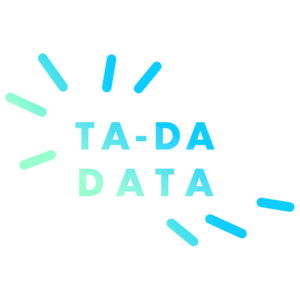
![]() Insights
Insights
According to research conducted by Statista in March 2023, 70% of UK advertisers said they heavily relied on third-party cookies to compile their online advertisements. Since then, third-party cookie deprecation has continued to rise, meaning that programmatic advertisers must adopt new methods to ensure their campaigns deliver successful ROIs.
For programmatic specialists who create ad campaigns on Meta, Conversions API (CAPI) is Meta’s solution to help fill the void left by third-party cookie deprecation. CAPI allows for a more direct connection between marketing data and Meta, resulting in more sophisticated data to aid the creation of programmatic campaigns.
This blog explains what CAPI is, how Conversions API is a future-proof solution, and the benefits CAPI brings to targeting and audience creation for Facebook ads.
For context, here’s an example journey users take to get to a website through Facebook and the significance of third-party cookies:
The third stage is where the conversion is attributed to Facebook via a third-party cookie through the Meta pixel, and this is where third-party cookies become essential.
The Meta pixel is code programmatic advertisers can add to websites to track third-party user activity from Facebook and Instagram. However, as third-party cookies deplete, it has become more challenging for this process to work, and this is where CAPI comes in.

Meta’s definition of Conversions API is:
Designed to create a connection between an advertiser’s marketing data (such as website events, app events, business messaging events, and offline conversions) from an advertiser’s server, website platform, mobile app, or CRM to Meta systems that optimize ad targeting, decrease cost per result and measure outcomes.
In essence, CAPI is Meta’s first-party data tool for tracking conversions. Instead of relying on third-party cookies through the Meta pixel, CAPI collects first-party data and uses a server to transfer the data over to Meta. From here, Meta can continue to track the conversion server-side, taking away heavy reliance on third-party cookies. However, for CAPI to operate successfully, you need an efficient server to collate and transfer this first-party data to Meta.
As of April 2023, 39% of media and marketing initiatives worldwide were concerned by the lack of preparedness for the cookie-less future. Conversions API is Meta’s future-proof solution to stop Facebook ad data from disappearing and keep you ahead of the game. The beauty of CAPI is that as more results are reported on, they are made more visible, but not to the detriment of user privacy.
In years to come, processible personal data is going to decrease. Meta has made sure that CAPI has adapted to the changes in the ad ecosystem; as such, CAPI does not bypass data-sharing policies or regulations. Instead, CAPI honours users’ privacy preferences to get the best data possible without reliance on third-party cookies or browsers.
First and foremost, CAPI makes the data programmatic advertisers use for campaigns more reliable. Because CAPI utilises first-party data, this makes it less dependent on internet browser activity (which is where the third-party cookies come from that the Meta pixel uses) and avoids issues including:
So rather than specific data being left behind, you can be sure that all necessary data is captured and utilised. But what is important to remember is that Conversions API or the Meta pixel should not be used in silo. Both can leverage only a certain amount of the data that’s available on Facebook. Therefore, it is best to use CAPI and the Meta pixel together to reap the unique benefits of each. The main advantage is that the more substantial the reliability of your user data, the lower the cost-per-action for programmatic campaigns.
The key aim of any programmatic campaign is to attract users at the top of the funnel (by performing the preferred action) and eventually lead users to the bottom of the funnel and achieve a business’s goals. CAPI helps programmatic advertisers get closer to data further down the funnel (where the business’s goals take place) and optimise toward those users more strongly. These are called deep funnel events, and examples can include:
Facebook Conversions API tracks these actions, and collates higher lead quality data making it much more mature. This results in campaigns that better optimised to reflect your target audience and business goals.

To follow on from optimising closer toward deep-funnel activity, Facebook CAPI improves performance by enabling better retargeting through cross-channel custom audiences via identity matching. Cross-channel custom audiences are created by analysing custom web event and non-web event data from CAPI and pixel, against users’ actions.
To retarget users successfully through identity matching, you need to take the data you formed as your cross-channel custom audience and match this to a person’s Meta profile. So, the higher the identity match rate, the more effective a cross-channel custom audience and retargeting campaign can be.
Collecting data through Meta Conversions API, in conjunction with the Meta pixel, is the key to ensuring third-party data loss does not negatively impact Facebook ad campaigns. Along with 49% of fellow global advertisers, activating a first-party data solution, such as CAPI, enables you to achieve the best results for Meta ad campaigns as we move toward a cookie-less future.
Do you need to implement CAPI?Contact us and our team can do it for you

![]() Insights
Insights

![]() Insights
Insights

![]() Insights
Insights